
Liepaja: The Windy City of Latvia
Liepaja, known as the 'City where the Wind is Born,' is a charming coastal city in western Latvia. This picturesque destination is renowned for its long stretches of sandy beaches, vibrant cultural scene, and rich history. Liepaja's unique blend of architectural styles, from Art Nouveau to Soviet-era buildings, creates an intriguing atmosphere that captivates visitors. Strolling through the city, you will find yourself enchanted by the beautiful parks, bustling markets, and lively cafes. One of the city's highlights is the Karosta district, a former military base that now serves as a historical and cultural site. Here, you can explore the eerie Karosta Prison, which offers guided tours and even overnight stays for the brave-hearted. Liepaja is also a city of music, hosting the annual Summer Sound Festival on its pristine beaches. The city boasts a thriving music scene, with numerous live music venues and events throughout the year. For art enthusiasts, the Liepaja Museum and the Great Amber Concert Hall are must-visit spots, showcasing local and international talent. Nature lovers will appreciate the nearby Lake Liepaja and the Pape Nature Park, which offer opportunities for birdwatching, hiking, and fishing. The city's coastal location also makes it an ideal spot for water sports such as windsurfing and sailing. With its warm hospitality and diverse attractions, Liepaja is a hidden gem waiting to be discovered.
Local tips in Liepaja
- Visit the Karosta district for a unique historical experience, including the Karosta Prison.
- Attend the Summer Sound Festival if visiting in July for an unforgettable beachside music event.
- Take a stroll along the Liepaja beach and enjoy the stunning sunsets.
- Explore Lake Liepaja and Pape Nature Park for birdwatching and hiking opportunities.
- Check out the Great Amber Concert Hall for world-class performances and architectural beauty.
- Try local Latvian cuisine at one of the many cozy cafes and restaurants in the city center.
Liepaja: The Windy City of Latvia
Liepaja, known as the 'City where the Wind is Born,' is a charming coastal city in western Latvia. This picturesque destination is renowned for its long stretches of sandy beaches, vibrant cultural scene, and rich history. Liepaja's unique blend of architectural styles, from Art Nouveau to Soviet-era buildings, creates an intriguing atmosphere that captivates visitors. Strolling through the city, you will find yourself enchanted by the beautiful parks, bustling markets, and lively cafes. One of the city's highlights is the Karosta district, a former military base that now serves as a historical and cultural site. Here, you can explore the eerie Karosta Prison, which offers guided tours and even overnight stays for the brave-hearted. Liepaja is also a city of music, hosting the annual Summer Sound Festival on its pristine beaches. The city boasts a thriving music scene, with numerous live music venues and events throughout the year. For art enthusiasts, the Liepaja Museum and the Great Amber Concert Hall are must-visit spots, showcasing local and international talent. Nature lovers will appreciate the nearby Lake Liepaja and the Pape Nature Park, which offer opportunities for birdwatching, hiking, and fishing. The city's coastal location also makes it an ideal spot for water sports such as windsurfing and sailing. With its warm hospitality and diverse attractions, Liepaja is a hidden gem waiting to be discovered.
When is the best time to go to Liepaja?
Iconic landmarks you can’t miss
Liepaja seaside park
Experience the natural beauty and recreational charm of Liepaja Seaside Park, a coastal gem perfect for relaxation and adventure.
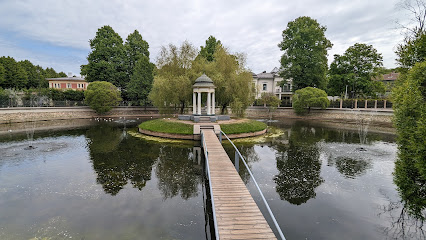
Rose Square
Discover Rose Square in Liepāja: a historic garden oasis, vibrant with roses and community spirit, offering a peaceful retreat in the city center.
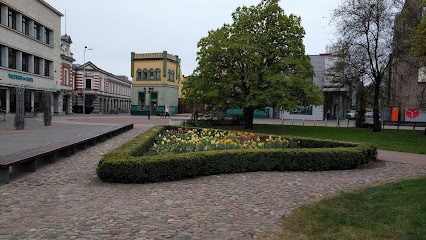
Liepāja Northern Breakwater
Explore Latvia's longest breakwater in Liepāja: history, stunning sunsets, and bracing sea air await on this iconic coastal landmark.
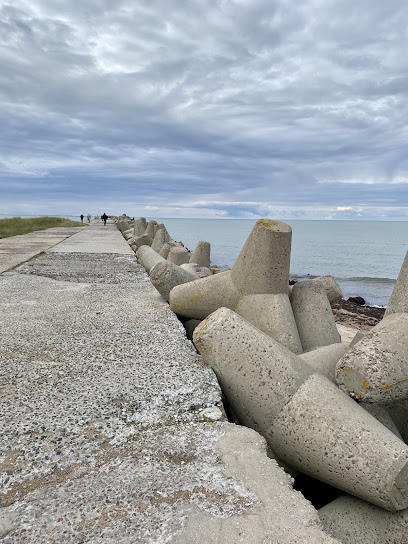
Karosta Prison
Explore the chilling history of Karosta Prison in Liepāja, Latvia: a former military prison turned unique museum and hotel experience.
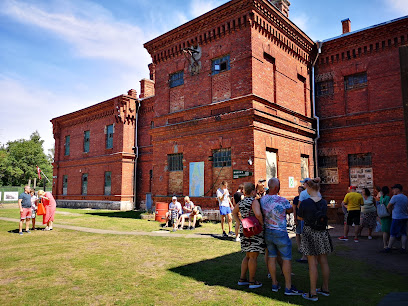
Artillery battery No.1 (Northern Fort)
Explore the historic Artillery Battery No. 1 in Liepāja: where military history meets striking coastal scenery and urban art.
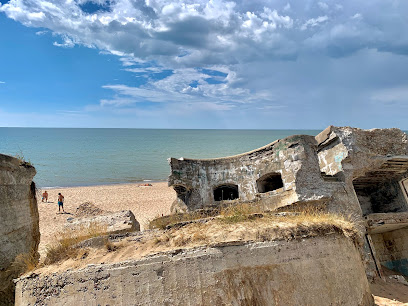
Spoku koks (Tree of Ghosts)
A unique musical monument in Liepāja honoring the legendary Latvian rock band Līvi, blending art, music, and local culture.
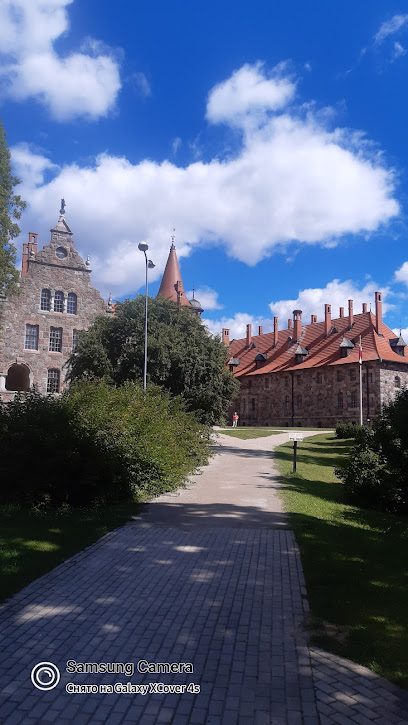
Liepājas muzejs
Explore Liepāja's rich history and culture at this museum, home to over 120,000 artifacts and unique exhibits.
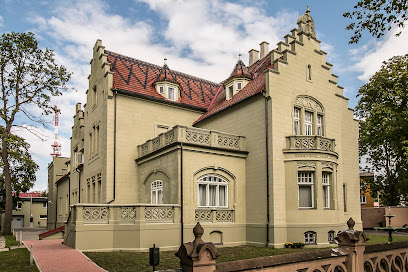
Artillery battery No.3
Explore the historic Artillery Battery No. 3 in Liepāja, a coastal fortress offering military history and Baltic Sea views.
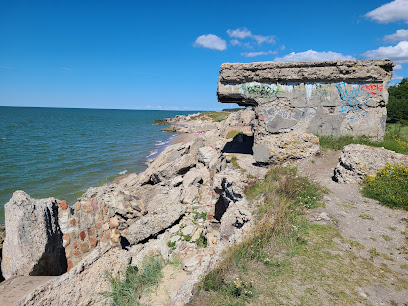
Redāns
Explore Redāns, a historic fortress in Liepāja's Karosta, and witness the echoes of Latvia's fight for independence.
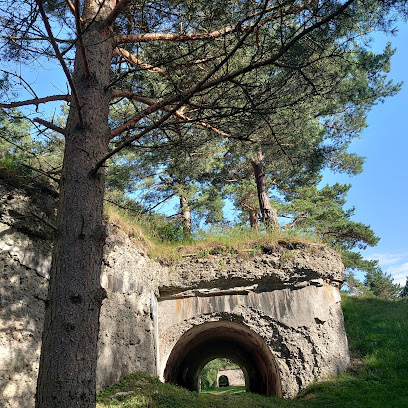
Monument For The Fishermen And Sailors Lost At Sea
A solemn monument in Liepāja's Seaside Park honoring lost seafarers and a downed US aircraft, reflecting the city's maritime heritage.
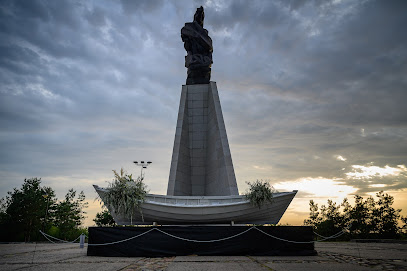
Holy Trinity Cathedral
Discover Liepāja's Holy Trinity Cathedral: A baroque masterpiece with the world's largest mechanical organ and panoramic city views.
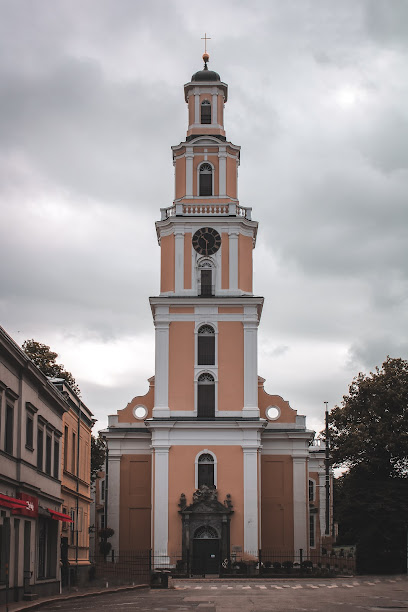
Liepajas Port Southern Moll
Experience the maritime spirit of Liepaja with a walk along the Southern Mole, offering stunning sea views and a connection to the Baltic's vastness.
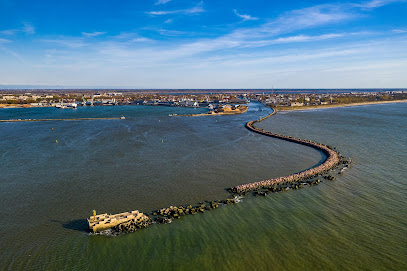
Liepajas Southern Forts
Discover Liepaja's Southern Forts: Explore coastal military history with stunning Baltic Sea views. A unique blend of nature and historical exploration.
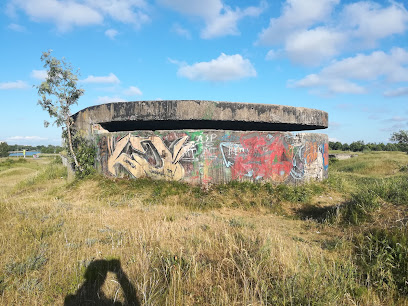
Karosta Water Tower
Explore Liepāja's naval heritage at the Karosta Water Tower, a striking red brick landmark hosting artists' workshops in summer.
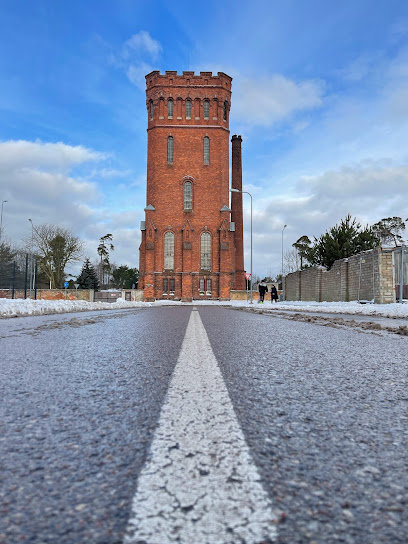
Liepaja city's eastern border
Explore Liepaja's scenic eastern border: where natural beauty meets local culture and history, offering a serene escape and gateway to city's charm.
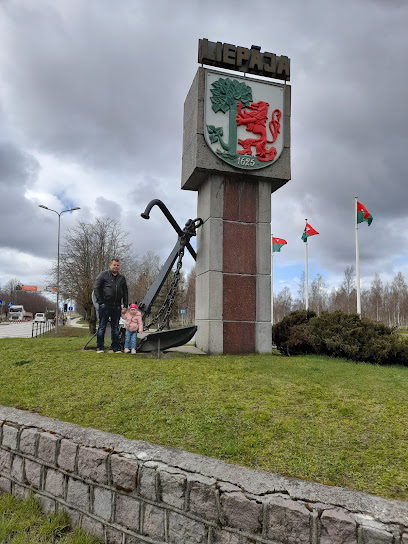
Unmissable attractions to see
Rose Square
Experience the tranquility of Rose Square in Liepāja, a stunning garden filled with vibrant flowers and peaceful pathways.
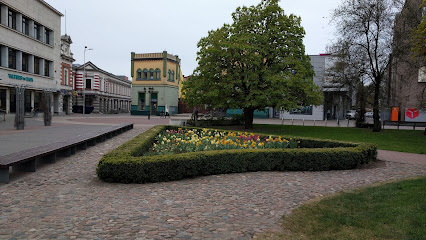
Karosta Prison
Discover the chilling history at Karosta Prison in Liepāja, a unique tourist attraction that reveals Latvia's military past and haunting stories.
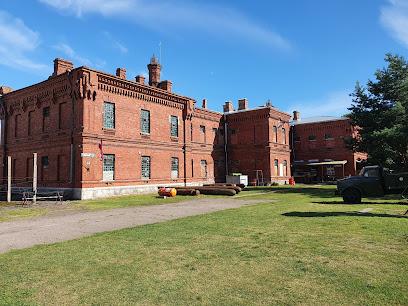
Liepāja Northern Breakwater
Discover the breathtaking views and serene beauty of the Liepāja Northern Breakwater, a must-visit coastal attraction in Latvia.
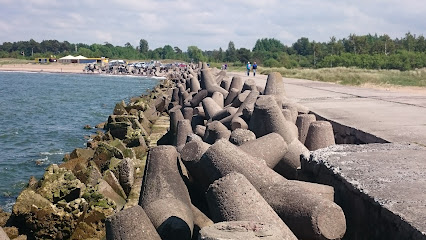
Artillery battery No.1 (Northern Fort)
Discover the rich military history and breathtaking views at Artillery Battery No.1, a captivating fortress in Liepāja, Latvia.
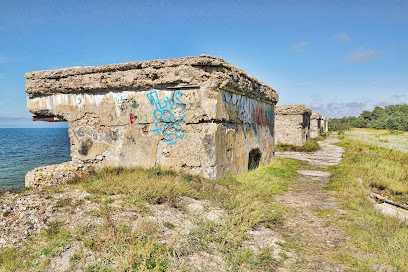
The Naval Orthodox Cathedral of Saint Nicholas
Discover the breathtaking Naval Orthodox Cathedral of Saint Nicholas, a stunning landmark showcasing the rich cultural heritage of Liepāja, Latvia.
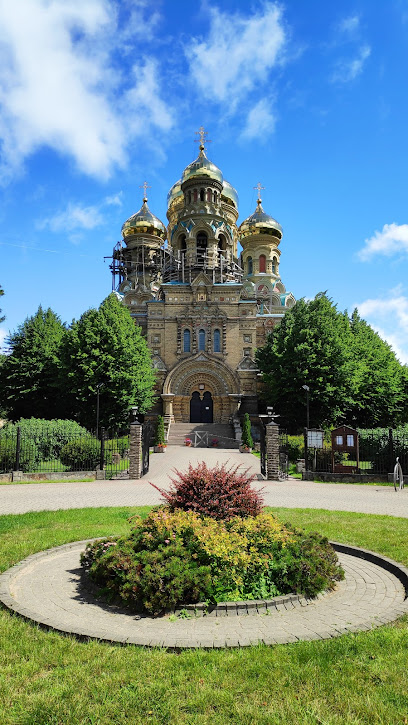
Spoku koks (Tree of Ghosts)
Explore the enchanting Spoku Koks, the Tree of Ghosts, a unique artistic installation in Liepāja that tells the haunting stories of local folklore.
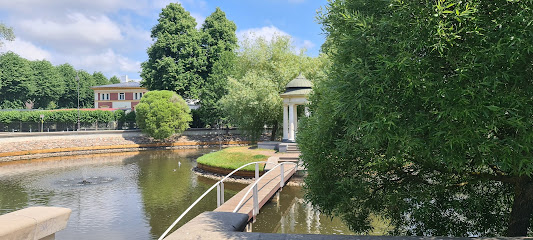
Liepājas muzejs
Explore Liepājas Muzejs: A Cultural Beacon in Liepāja, Latvia, Showcasing the City's Rich Heritage and Artistic Legacy.
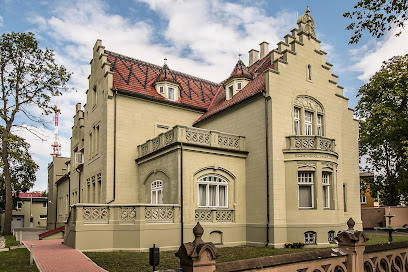
Swan Pond
Experience tranquility and natural beauty at Swan Pond in Liepāja, a perfect escape for nature lovers and photographers.
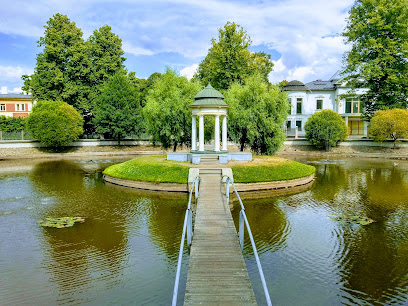
Jāņa Čakstes area
Explore the tranquil beauty of Jāņa Čakstes Memorial Park in Liepāja, a historical tribute amidst lush greenery and serene landscapes.
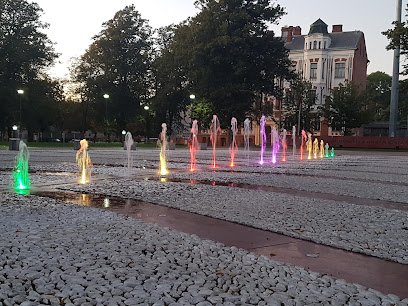
City Name On The Beach
Experience the beauty and culture of Liepāja, a charming coastal city offering stunning beaches, rich history, and vibrant local life.
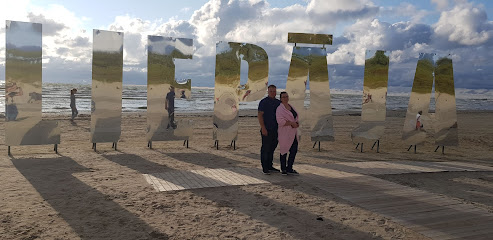
Recreational area of Liepaja lake
Explore the serene Recreational Area of Liepaja Lake, a perfect destination for hiking, bird-watching, and enjoying nature's tranquility in Latvia.
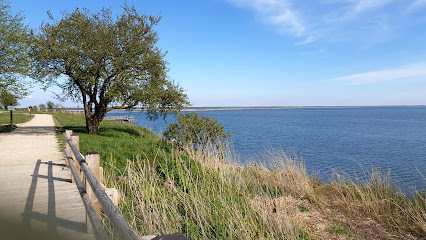
Horse Island Birdwatch Tower
Explore the serene Horse Island Birdwatch Tower in Liepāja, where nature and birdwatching meet in a peaceful oasis of beauty.
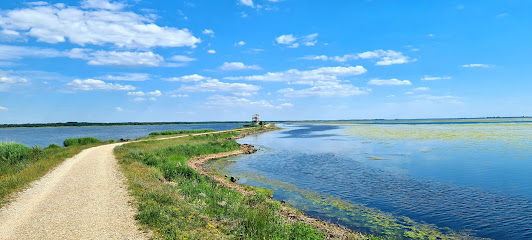
Lāčplēša dārzs
Experience the tranquility of Lāčplēša Dārzs in Liepāja, Latvia – a lush park perfect for relaxation, picnics, and cultural events.
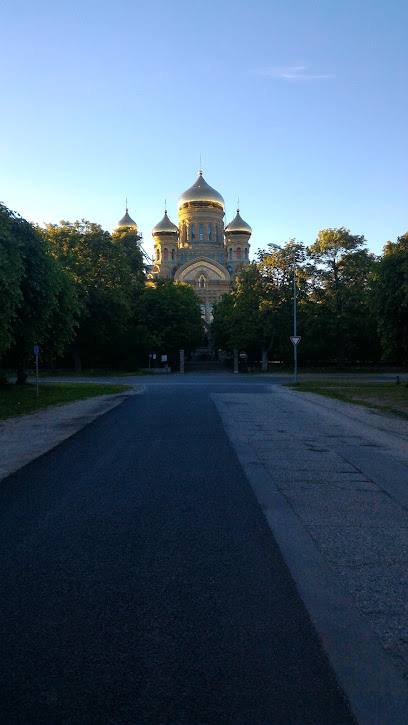
Holy Trinity Cathedral
Discover the stunning Holy Trinity Cathedral in Liepāja, a masterpiece of architecture with a remarkable organ and rich cultural significance.
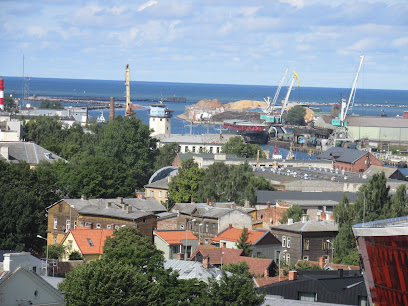
Liepajas Port Southern Moll
Discover the charm of Liepaja's Southern Moll, a vibrant port area offering stunning views, delicious local cuisine, and a taste of Latvia's maritime heritage.
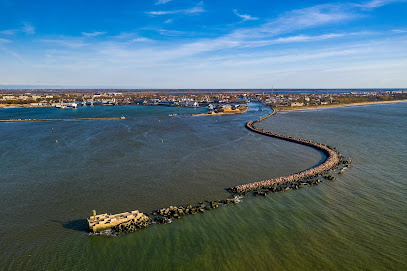
Essential places to dine
Doka pica
Discover delectable pizzas at Doka Pica in Liepāja, where traditional recipes meet local flavors in a cozy dining atmosphere.
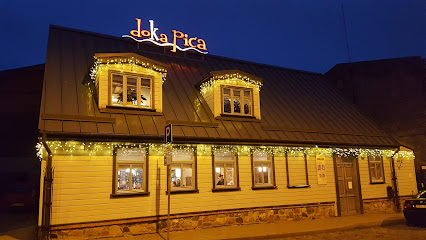
Hot Potato
Discover culinary delights at Hot Potato in Liepāja - where local flavors meet cozy dining!
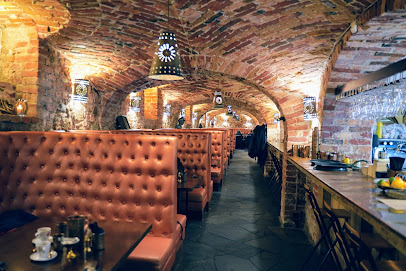
Restaurant Olive
Experience exquisite dining at Restaurant Olive in Liepāja—where local flavors meet international cuisine in an inviting atmosphere.
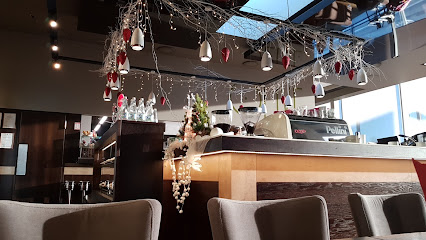
Red Sun Buffet
Discover an exquisite buffet experience at Red Sun Buffet in Liepāja - where diverse flavors come together in a delightful dining atmosphere.
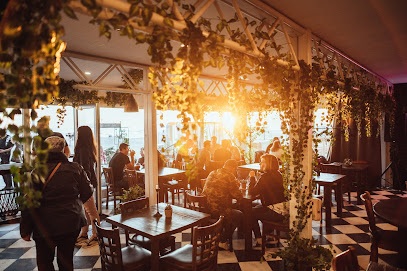
MO Liepāja
Experience exquisite dining at MO Liepāja – where traditional Latvian cuisine meets modern elegance in a vibrant atmosphere.
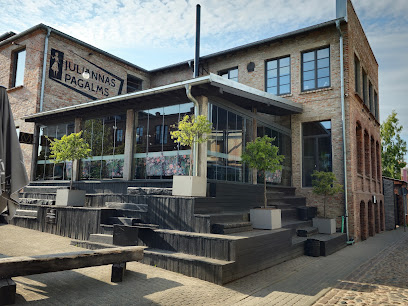
Klondaika
Discover Klondaika in Liepāja: A cozy restaurant offering authentic Latvian cuisine with modern flair in a charming setting.
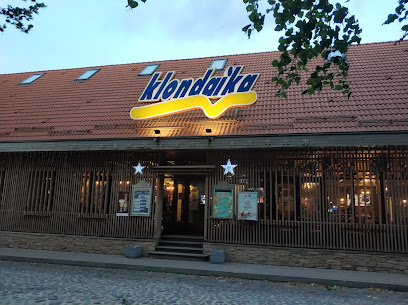
Valhalla Wine & Coffee, kafejnīca
Discover the unique flavors at Valhalla Wine & Coffee in Liepāja - where gourmet meets comfort in an inviting atmosphere.
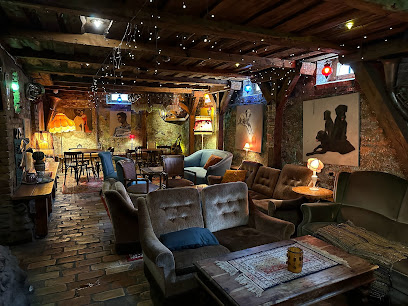
7. Līnija
Savor the best of local and international cuisine at 7. Līnija – a culinary hotspot in the heart of Liepāja.
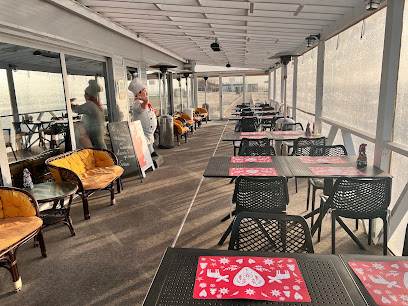
Čili Pizza
Discover delicious pizzas at Čili Pizza in Liepāja – where every slice tells a story of flavor and tradition.
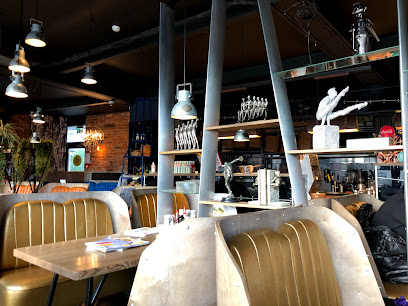
Fontaine Delisnack
Discover the vibrant flavors of Liepāja at Fontaine Delisnack - A restaurant & bar offering delicious cuisine in a cozy atmosphere.
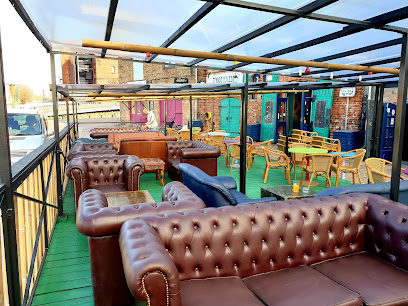
Street Burgers (Liepājas burgernīca)
Experience the ultimate burger delight at Street Burgers in Liepāja - where quality meets flavor in every bite.
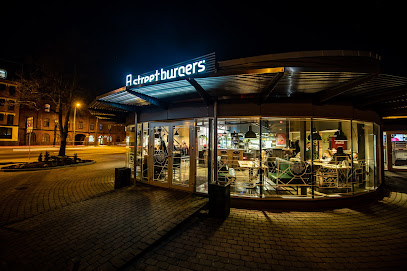
Bel Cibo Pizza Napoletana
Experience the authentic taste of Italy at Bel Cibo Pizza Napoletana in Liepāja - where every pizza tells a story.
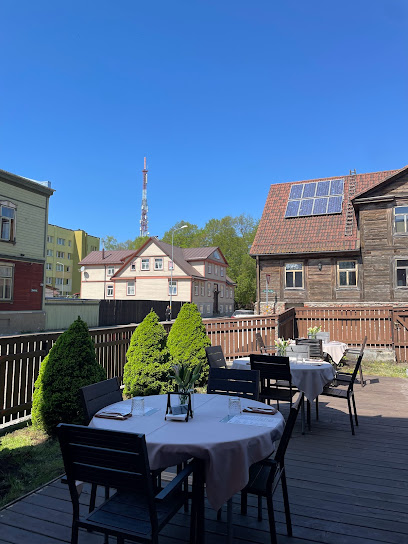
Kafejnīca ''Lira''
Experience the flavors of Latvia at Kafejnīca ''Lira'', where tradition meets contemporary cuisine in a cozy setting.
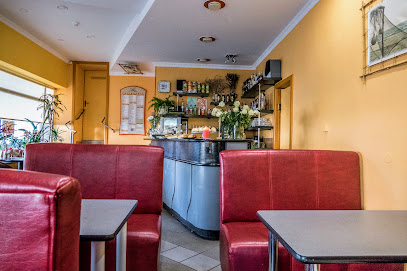
Kafejnīca Panna
Discover Kafejnīca Panna in Liepāja - where cozy atmosphere meets delightful coffee and light bites for an unforgettable experience.
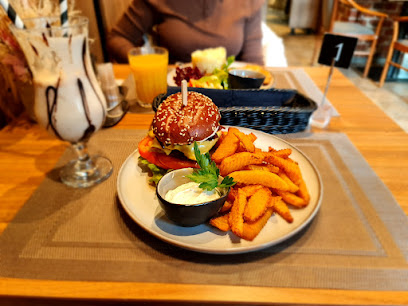
Vējš Cafe
Discover the charm of Vējš Cafe in Liepāja – where exceptional coffee meets delicious crepes in a cozy setting.
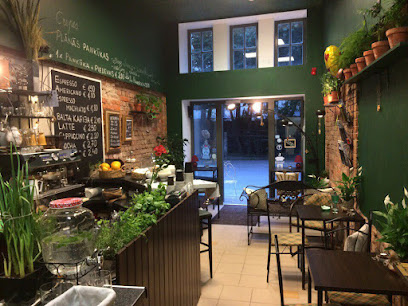
Markets, malls and hidden boutiques
Shopping centre Kurzeme / Tirdzniecības centrs Kurzeme
Explore the vibrant Shopping Centre Kurzeme in Liepāja, your ultimate destination for shopping, dining, and local culture.
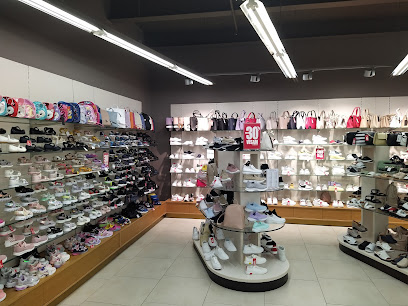
KSenukai Liepāja
Discover a vast selection of top-quality building materials at KSenukai Liepāja, your essential stop for construction supplies in the heart of the city.
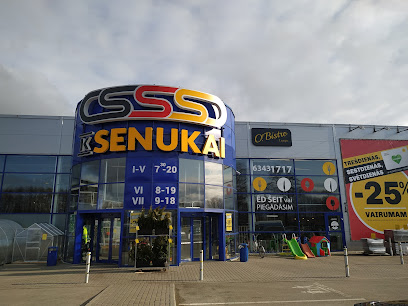
Ostmala Shopping Mall
Discover the vibrant shopping scene at Ostmala Shopping Mall in Liepāja, where trendy boutiques meet delightful dining experiences.
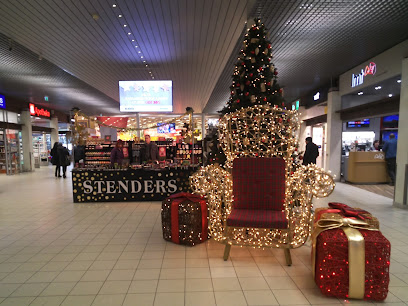
Shopping center Ostmala
Explore Shopping Center Ostmala in Liepāja for a delightful fusion of shopping, dining, and local art experiences.
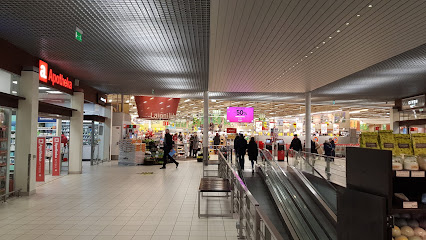
PROMO Cash&Carry
Shop smart at PROMO Cash&Carry in Liepāja for unbeatable prices on groceries and everyday essentials.
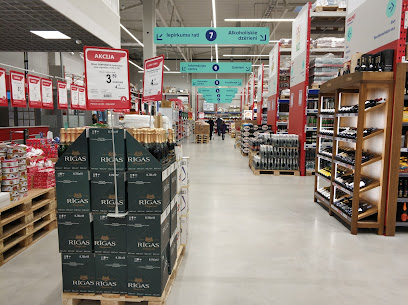
Naktinsh. Grocery store
Visit Naktinsh in Liepāja for a wide selection of local and international grocery products, enhancing your culinary experience.
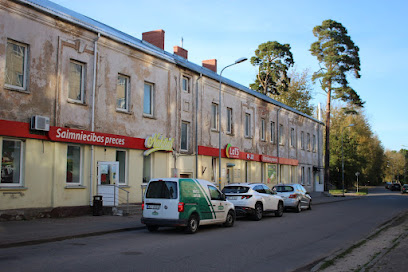
Beta
Discover local flavors at Beta Grocery Store in Liepāja, a treasure trove of fresh produce and regional delicacies.
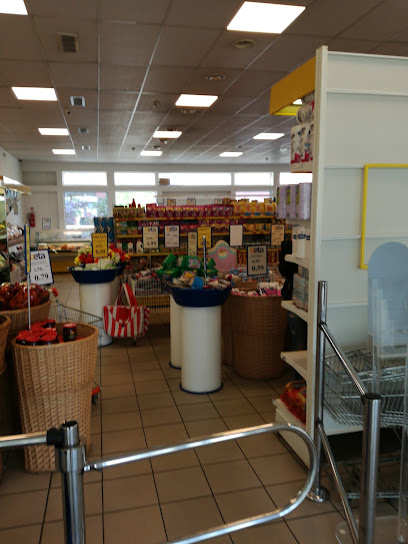
mini top!
Experience local flavors at Mini Top!, the grocery store in Liepāja offering fresh produce and Latvian specialties.
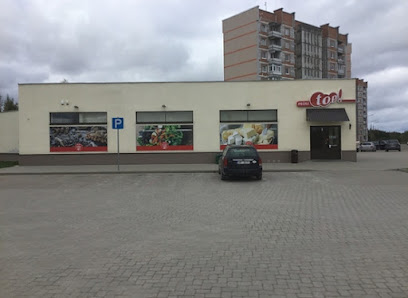
top!
Experience the essence of Liepāja with a visit to Top! Grocery Store, where local and international flavors come together for every traveler.
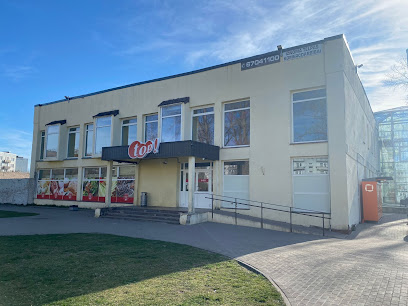
Rūtiņa
Discover Rūtiņa in Liepāja, your go-to stationery store for unique gifts, local art, and creative inspiration in Latvia.
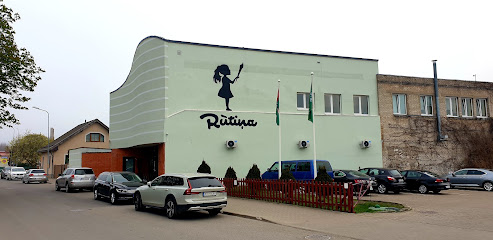
Dvini S. Grocery store
Explore Liepāja's local flavors at Dvini S. Grocery Store, a vibrant hub for fresh produce and traditional Latvian goods.
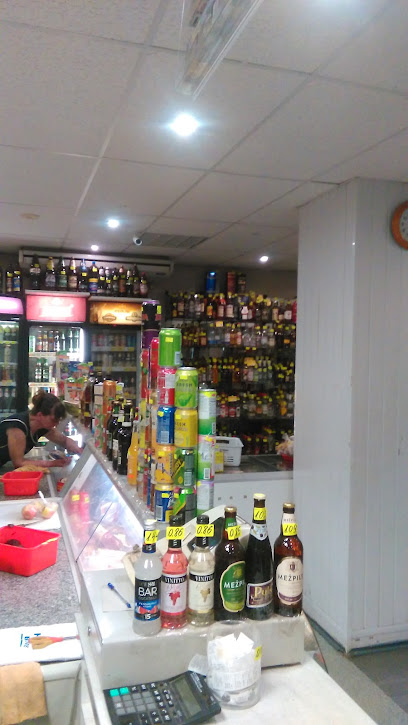
Lats
Discover authentic Latvian flavors and local products at Lats Grocery Store in Liepāja, a culinary gem for tourists.
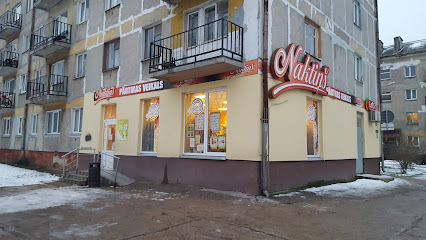
KRASO | Krāsu speciālisti - kraso.com
Explore a vast selection of paints and building materials at Krāsu Speciālisti, the go-to destination for creative projects in Liepāja.
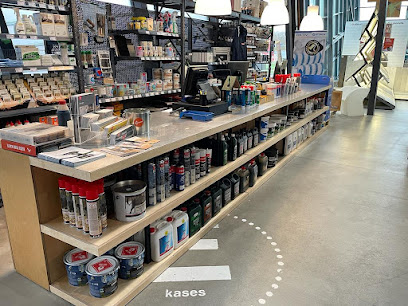
MERE
Explore the vibrant flavors of Liepāja at MERE, your go-to grocery store for fresh produce and local delicacies.
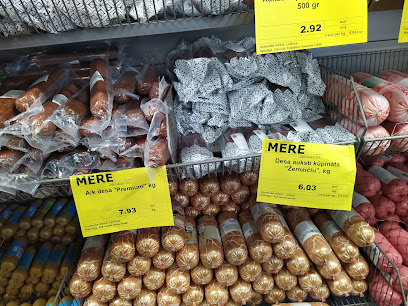
Karosta , SIA
Explore the vibrant flavors of Liepāja at Karosta, your go-to grocery store for local delicacies and international treats.
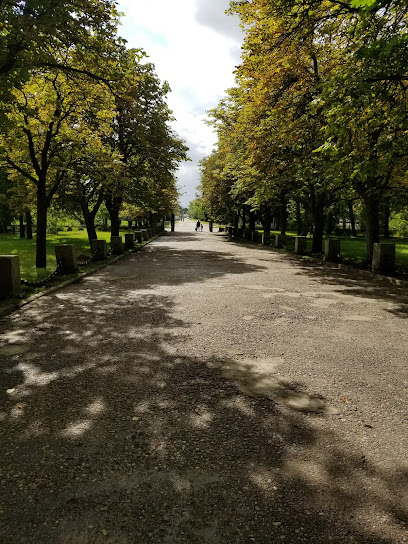
Essential bars & hidden hideouts
Hot Potato
Discover the vibrant flavors of Liepāja at Hot Potato, where local ingredients meet creative culinary artistry in a cozy atmosphere.
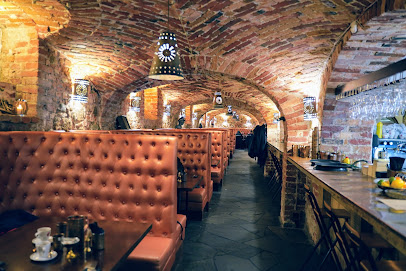
Red Sun Buffet
Experience the culinary delights of Red Sun Buffet in Liepāja, where local flavors meet global cuisine in a vibrant buffet setting.
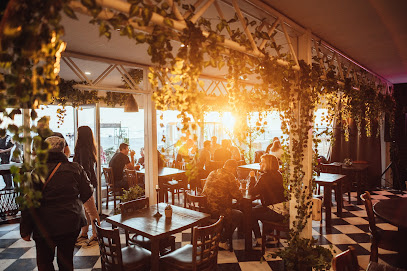
Valhalla Wine & Coffee, kafejnīca
Experience the perfect blend of fine wines, gourmet coffee, and delicious burgers at Valhalla Wine & Coffee in picturesque Liepāja.
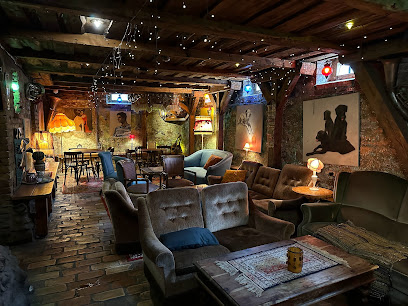
Loms, bārs
Discover the heart of Liepāja nightlife at Loms Bar – a vibrant spot for drinks and delightful meals in a lively atmosphere.
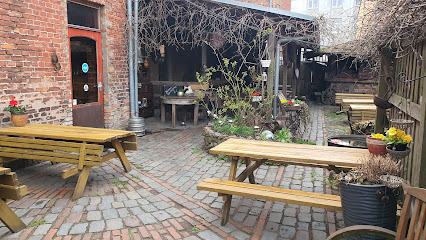
Fontaine Palace Club
Unleash your nightlife at Fontaine Palace Club, the heart of Liepāja's vibrant entertainment scene with diverse dining and thrilling live music.
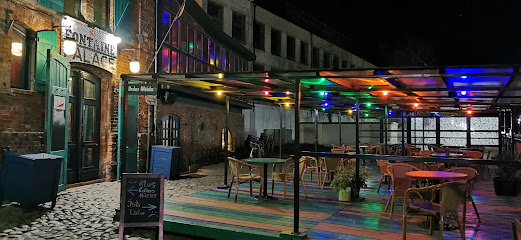
Miezis & Kompānija
Discover the vibrant nightlife of Liepāja at Miezis & Kompānija, where craft beers and cocktails meet a lively atmosphere.
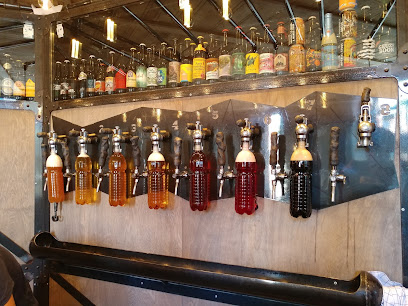
Piano , restorans
Experience the culinary artistry of Piano Restaurant in Liepāja, where local flavors meet a stunning waterfront ambiance for an unforgettable dining experience.
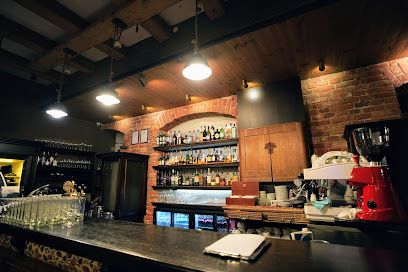
Wiktorija
Experience the vibrant atmosphere and local culture at Wiktorija, Liepāja's must-visit bar for drinks and entertainment.
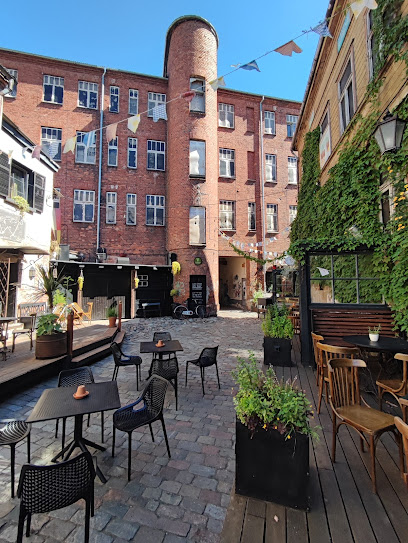
Vecais Taizel’s
Experience the best of Latvian craft brewing and delicious cuisine at Vecais Taizel's in Liepāja, where every sip and bite tells a story.
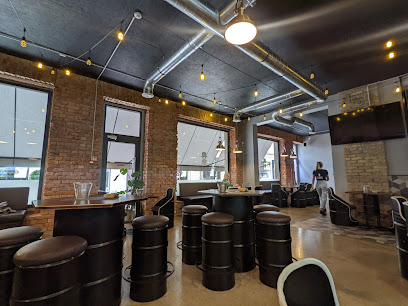
Blaķene Barber Shop Bārs
Experience the perfect blend of grooming and relaxation at Blaķene Barber Shop Bārs in Liepāja, where style meets socializing.
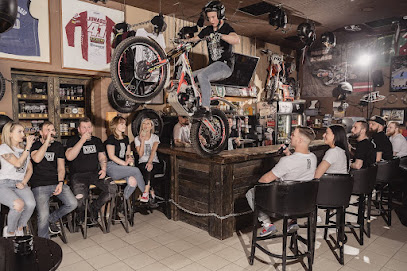
Cukurfabrik' club / grill bar
Discover the vibrant atmosphere and culinary delights of Cukurfabrik' Club & Grill Bar in Liepāja, offering exquisite drinks and grilled dishes.
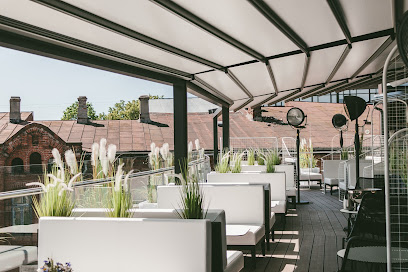
Kursas Putni
Discover the vibrant atmosphere of Kursas Putni, Liepāja's premier live music bar offering eclectic performances and a delightful drink selection.
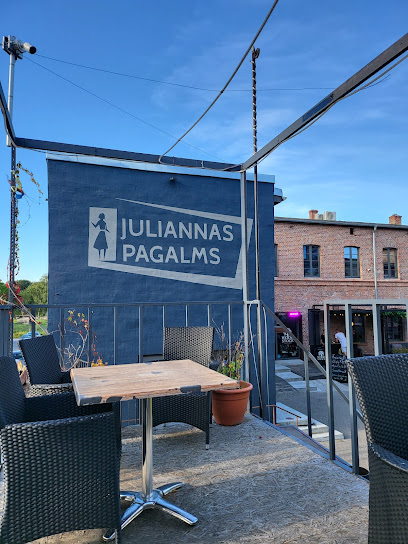
Restaurant OXO BRASSERIE
Savor the flavors of Latvia at OXO BRASSERIE, Liepāja’s premier restaurant, offering exquisite dishes and a warm, inviting atmosphere.
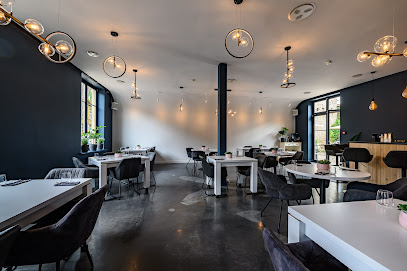
Hoijeres krogs
Discover the heart of Latvian culture at Hoijeres Krogs, a cozy pub in Liepāja offering delicious traditional cuisine and local brews.
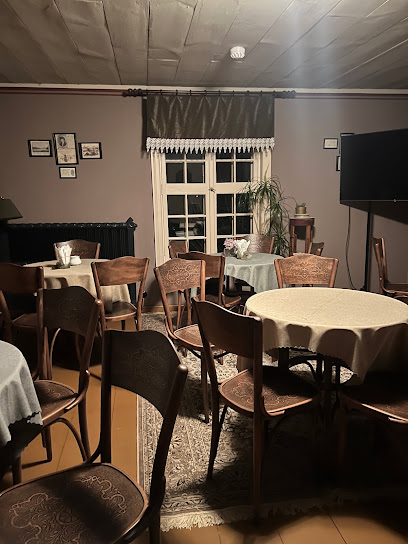
Local Phrases
-
- HelloSveiki
[svei-ki] - GoodbyeUz redzēšanos
[uz red-ze-sha-nos] - YesJā
[ya] - NoNē
[ne] - Please/You're welcomeLūdzu
[lu-du] - Thank youPaldies
[pal-dyes] - Excuse me/SorryAtvainojiet
[at-vai-no-yet] - How are you?Kā jums klājas?
[ka yums kla-yas] - Fine. And you?Labi. Un jūs?
[la-bi. oon yus] - Do you speak English?Vai jūs runājat angļu valodā?
[vai yus roo-na-yat ang-lu va-lo-da] - I don't understandEs nesaprotu
[es ne-sa-pro-tu]
- HelloSveiki
-
- I'd like to see the menu, pleaseEs vēlētos redzēt ēdienkarti, lūdzu
[es ve-le-tos red-ze-t e-dye-en-kar-ti lu-du] - I don't eat meatEs nēēdu gaļu
[es ne-yee-du gal-u] - Cheers!Priekā!
[prie-ka] - I would like to pay, pleaseEs vēlētos samaksāt, lūdzu
[es ve-le-tos sa-mak-sat lu-du]
- I'd like to see the menu, pleaseEs vēlētos redzēt ēdienkarti, lūdzu
-
- Help!Palīdzība!
[pa-lid-zi-ba] - Go away!Iziet prom!
[ee-zyet prom] - Call the Police!Sauciet policiju!
[sau-tsieht po-li-tsi-you] - Call a doctor!Sauciet ārstu!
[sau-tsieht ar-stu] - I'm lostEs esmu pazudis/pazudusi
[es es-mu pa-zu-dis/pa-zu-du-si] - I'm illMan ir slikti
[man eer slit-ki]
- Help!Palīdzība!
-
- I'd like to buy...Es vēlētos iegādāties...
[es ve-le-tos ye-ga-da-ties] - I'm just lookingEs tikai pārskatos
[es ti-kai paar-ska-tos] - How much is it?Cik tas maksā?
[tsik tas mak-sa] - That's too expensiveTas ir pārāk dārgs
[tas eer paar-ak dargs] - Can you lower the price?Vai jūs varētu pazemināt cenu?
[vai yus va-re-tu pa-ze-me-nat tse-nu]
- I'd like to buy...Es vēlētos iegādāties...
-
- What time is it?Cik ir pulkstenis?
[tsik eer pulk-ste-nis] - It's one o'clockIr viens pulkstenis
[eer vyens pulk-ste-nis] - Half past (10)Pus desmit
[poos des-mit] - MorningRīts
[reets] - AfternoonPēcpusdiena
[pech-pus-dye-na] - EveningVakars
[va-kars] - YesterdayVakar
[va-kar] - TodayŠodien
[sho-dyen] - TomorrowRīt
[reet] - 1Viens
[vyens] - 2Divi
[dee-vee] - 3Trīs
[trees] - 4Četri
[che-trees] - 5Pieci
[pye-tsee] - 6Seši
[se-shee] - 7Septiņi
[sep-tsee-nyee] - 8Astoņi
[as-ton-yee] - 9Deviņi
[de-veen-yee] - 10Desmit
[des-mit]
- What time is it?Cik ir pulkstenis?
-
- Where's a/the...?Kur atrodas...
[koor a-tro-das] - What's the address?Kāda ir adrese?
[ka-da eer a-dre-se] - Can you show me (on the map)?Vai jūs varat man parādīt (uz kartes)?
[vai yus va-rat man pa-ra-deet oos kar-tes] - When's the next (bus)?Kad būs nākamais (autobuss)?
[kad boos na-ka-mais auto-boos] - A ticket (to ....)Bilete (uz ....)
[bi-le-te oos]
- Where's a/the...?Kur atrodas...
History of Liepaja
-
Liepaja was first mentioned in historical chronicles in 1253 as a small Curonian settlement called Līva. The region was part of the Livonian Confederation, and over time, it became an important trading post due to its strategic location along the Baltic Sea.
-
In 1560, Liepaja came under the control of the Duchy of Courland and Semigallia, a vassal state of the Polish-Lithuanian Commonwealth. The city's development accelerated during this period, and in 1625, it was granted city rights by Duke Friedrich Kettler.
-
In the late 17th century, the city fell under Swedish rule and later became part of the Russian Empire after the Great Northern War in 1721. Under Russian rule, Liepaja developed into a major port and industrial center, significantly contributing to its growth and prosperity.
-
In 1867, Tsar Alexander II declared Liepaja a free port, spurring rapid economic development. The city became a crucial hub for trade and shipbuilding. The establishment of the railway connecting Liepaja to other parts of the Russian Empire further bolstered its economic importance.
-
During World War I, Liepaja was occupied by German forces. Following the war, Latvia declared its independence in 1918, and Liepaja played a significant role as a temporary capital of the new republic when Riga was under threat from both German and Bolshevik forces.
-
Liepaja faced severe hardships during World War II, including occupation by both Nazi Germany and the Soviet Union. The city was heavily bombed, and many of its inhabitants suffered under harsh military regimes. After the war, Liepaja was incorporated into the Soviet Union, leading to significant changes in its demographic and industrial landscape.
-
Following the dissolution of the Soviet Union in 1991, Latvia regained its independence, and Liepaja began a new chapter in its history. The city has since focused on revitalizing its economy, promoting tourism, and preserving its rich cultural heritage. Modern Liepaja boasts a vibrant cultural scene, with numerous festivals, museums, and historical sites attracting visitors from around the world.
Liepaja Essentials
-
Liepaja is located on the western coast of Latvia. The nearest international airport is Riga International Airport (RIX), approximately 210 kilometers away. From Riga, you can take a direct bus operated by Lux Express or a train operated by Latvian Railways to Liepaja. The journey typically takes around 3 to 4 hours by road and approximately 2.5 hours by train. Alternatively, you can rent a car for a more flexible travel experience.
-
Liepaja has a well-developed public transport system, including buses and trams that connect different parts of the city. Tickets can be purchased from kiosks or directly from the driver. Taxis are also readily available, but it is advisable to use reputable companies or apps like Bolt. For those who prefer cycling, Liepaja is bicycle-friendly, with several rental options available.
-
The official currency in Latvia is the Euro (EUR). Credit and debit cards are widely accepted in most hotels, restaurants, and shops. However, it is a good idea to carry some cash for smaller establishments and markets. ATMs are plentiful in Liepaja, and currency exchange offices can be found in the city center.
-
Liepaja is generally a safe city for tourists. However, like any other destination, it is important to take basic precautions. Avoid walking alone at night in poorly lit areas and keep an eye on your belongings in crowded places. The Karosta area, while historically interesting, has some neighborhoods where caution is advised, especially after dark.
-
In case of emergency, dial 112 for immediate assistance. This number connects you to police, fire, and medical services. For health emergencies, Liepaja Regional Hospital is well-equipped to handle various medical situations. Pharmacies are available throughout the city for minor health issues and over-the-counter medications.
-
Fashion: Do dress comfortably and appropriately for the weather. Casual wear is generally accepted, but avoid overly revealing clothing. Religion: Do respect local religious customs, especially when visiting churches. Public Transport: Do buy a ticket before boarding and validate it. Don't eat or drink on public transport. Greetings: Do greet people with a friendly 'Labdien' (Good day) and a handshake. Eating & Drinking: Do try local dishes and accept offers of food and drink graciously. Don't leave food on your plate as it may be considered wasteful.
-
To experience Liepaja like a local, visit the Central Market for fresh produce and traditional Latvian goods. Stroll along the Liepaja beach and explore the scenic parks. Engage with locals who are generally friendly and proud of their city's history and culture. Don’t miss the Liepaja Museum and the Concert Hall ‘Great Amber’ for a taste of local art and music. For a unique experience, explore the Karosta Prison, now a museum and cultural site.
Trending Landmark in Liepaja
-
Liepaja seaside park
-
Rose Square
-
Liepāja Northern Breakwater
-
Karosta Prison
-
Artillery battery No.1 (Northern Fort)
-
Spoku koks (Tree of Ghosts)
-
Liepājas muzejs
-
Artillery battery No.3
-
Redāns
-
Monument For The Fishermen And Sailors Lost At Sea
-
Holy Trinity Cathedral
-
Liepajas Port Southern Moll
-
Liepajas Southern Forts
-
Karosta Water Tower
-
Liepaja city's eastern border
Nearby Cities to Liepaja
-
Things To Do in Kuldiga
-
Things To Do in Klaipėda
-
Things To Do in Ventspils
-
Things To Do in Talsi
-
Things To Do in Šiauliai
-
Things To Do in Jurmala
-
Things To Do in Riga
-
Things To Do in Visby
-
Things To Do in Kuressaare
-
Things To Do in Panevėžys
-
Things To Do in Sigulda
-
Things To Do in Kaunas
-
Things To Do in Jonava
-
Things To Do in Marijampolė
-
Things To Do in Cesis













